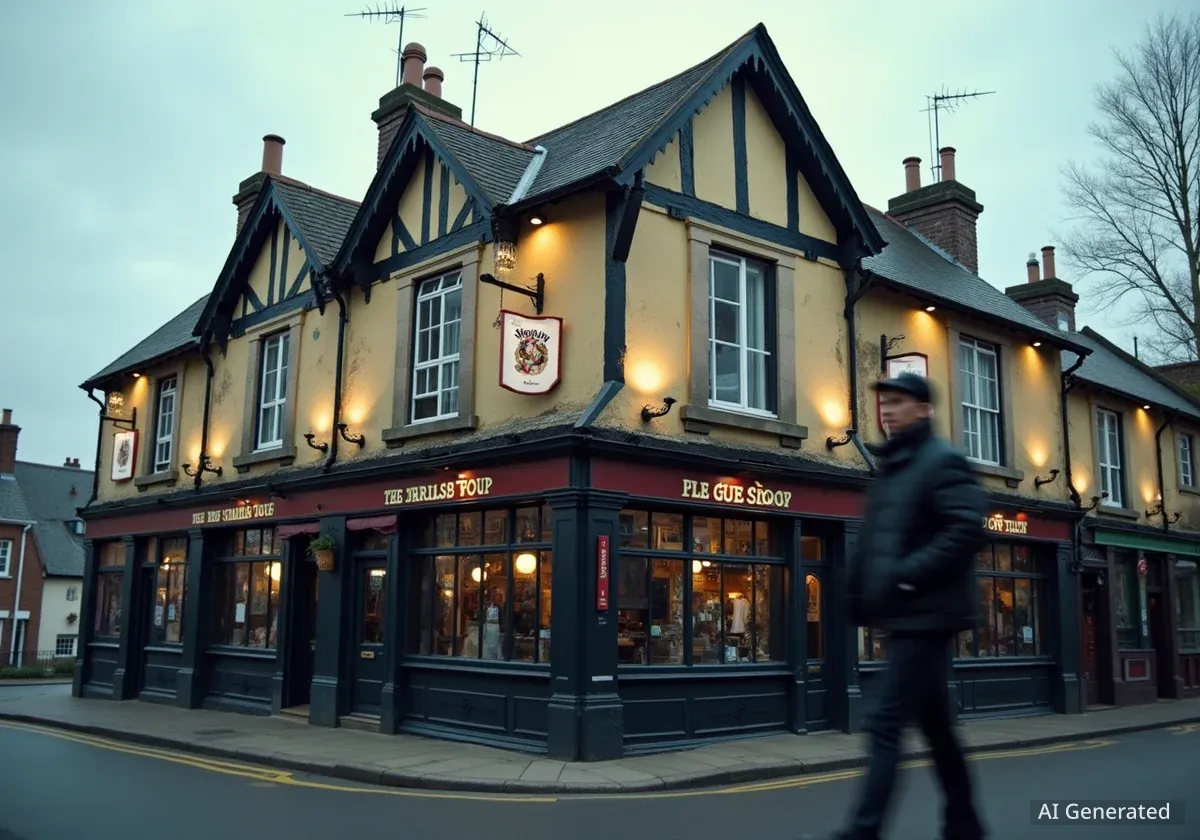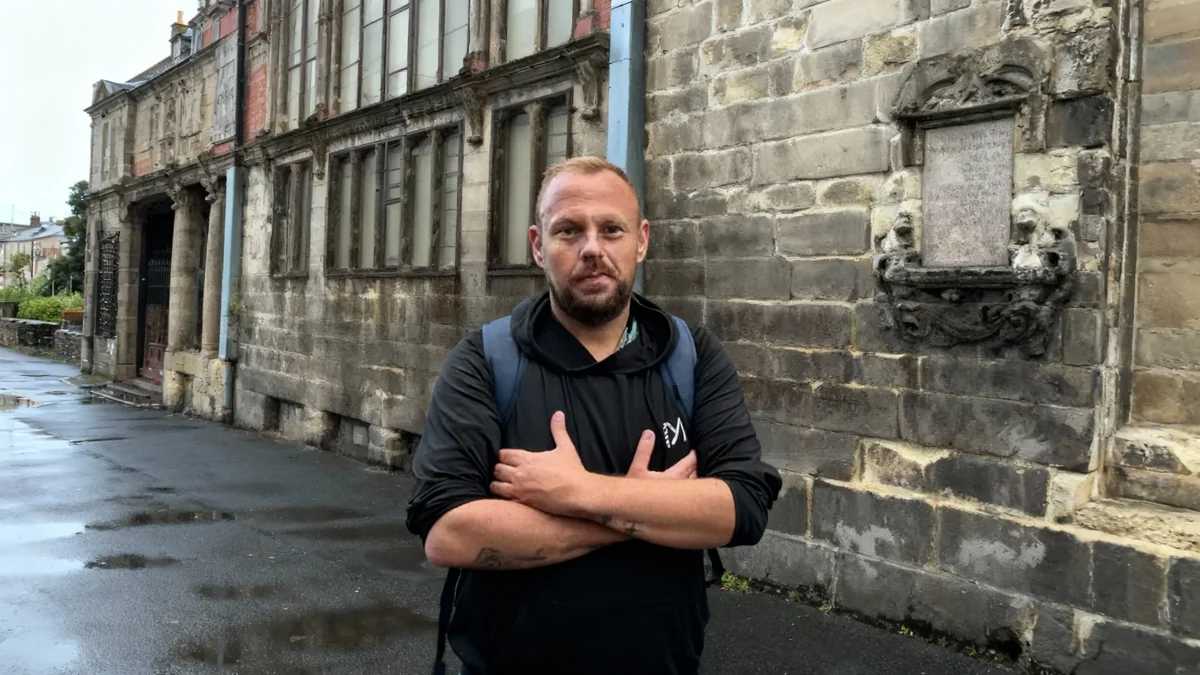A pub in Wallasey has changed its name to 'The George Orwell' as a direct protest against the UK government's plans to introduce digital identification cards. The James Atherton, located in New Brighton's Victoria Quarter, adopted the new name to spark a public conversation about civil liberties and government surveillance.
The rebranding is a direct reference to the author of the dystopian novel Nineteen Eighty-Four, which famously depicts a totalitarian state where citizens are under constant watch by 'Big Brother'. Daniel Davies, the operator behind the pub, stated the move is intended to raise awareness about the potential implications of such a system.
Key Takeaways
- Pub Rebranded: The James Atherton pub in New Brighton, Wallasey, is now named 'The George Orwell'.
- Reason for Change: The new name is a protest against the UK government's proposal for mandatory digital ID cards.
- Core Message: The operator aims to provoke a debate on civil liberties, privacy, and the risk of an 'Orwellian' future.
- Political Timing: The change coincided with the Labour Party Conference in Liverpool, where the digital ID plan was a topic of discussion.
A Symbolic Name Change in New Brighton
The pub, a well-known establishment in the regenerated Victoria Quarter of New Brighton, now bears the name of one of the 20th century's most influential writers on totalitarianism. The decision was made by Daniel Davies, a key figure in the area's regeneration, who believes the proposed digital ID system poses a threat to personal freedom.
The name change is not just a new sign above the door; it is intended as a clear political statement. By invoking George Orwell, the pub's management aims to connect the government's policy directly with the themes of surveillance and state control explored in his work, particularly Nineteen Eighty-Four.
Sparking a Public Debate
In an interview with BBC Radio Merseyside, Mr. Davies explained the motivation behind the provocative rebranding. He expressed a desire to encourage people to think critically about the direction of government policy and its impact on daily life.
"This is about waking people up, we don't want a future where every part of our lives is monitored and controlled. That's not freedom: that's Orwellian."
Davies emphasized that while the technology itself might seem benign, its potential for misuse is a significant concern. He warned that such a system, in the wrong hands, could lead to the kind of society Orwell cautioned against.
Who Was George Orwell?
George Orwell (the pen name of Eric Arthur Blair) was an English novelist and essayist best known for his critiques of totalitarianism. His most famous works, Animal Farm (1945) and Nineteen Eighty-Four (1949), have become cornerstones of political literature, warning against the dangers of government overreach, censorship, and surveillance.
The Digital ID Controversy
The pub's protest comes as the debate over digital identification intensifies in the UK. The timing of the rebrand was significant, occurring as the Labour Party held its conference in nearby Liverpool. During this period, leader Sir Keir Starmer discussed the roll-out of digital ID cards.
Proponents of the plan, including the government, argue that digital IDs are necessary to enhance national security and streamline access to services. Sir Keir Starmer suggested the system could "make our borders more secure."
However, critics raise serious concerns. Civil liberties groups and privacy advocates argue that a centralized digital identity system represents a dangerous encroachment on personal freedoms. They fear it could lead to a culture of surveillance, making it easier for the state to track citizens' activities.
Concerns Over Security and Fraud
Beyond the philosophical objections, practical concerns have also been raised. Mr. Davies highlighted the vulnerability of any large-scale IT infrastructure to cyberattacks. He expressed worries that a national digital ID database could become a prime target for hackers, potentially exposing the personal data of millions and increasing the risk of identity fraud.
A History of Protest
This is not the first time The James Atherton has used a name change to make a political point. In 2021, the pub gained international attention when it was temporarily renamed 'The Three B*llends' in a risqué protest against the Conservative government's COVID-19 lockdown restrictions, which many in the hospitality industry felt were unfair and damaging.
Freedom of Expression in the UK
Despite his strong opposition to the digital ID policy, Mr. Davies acknowledged a crucial aspect of living in the UK. He noted that his ability to rename his pub in such a public and critical manner is, in itself, a testament to the country's existing freedoms.
He contrasted the situation in the UK with that of more authoritarian regimes, highlighting the value of free speech.
"There are some countries where, if I'd done this, I might have mysteriously fallen out of a window by now."
This sentiment underscores the core of his protest: a desire to protect the very civil liberties that allow such a demonstration to take place without fear of serious reprisal. The pub now stands not just as a place for a pint, but as a physical landmark in the ongoing national conversation about privacy, security, and the role of the state in the 21st century.





